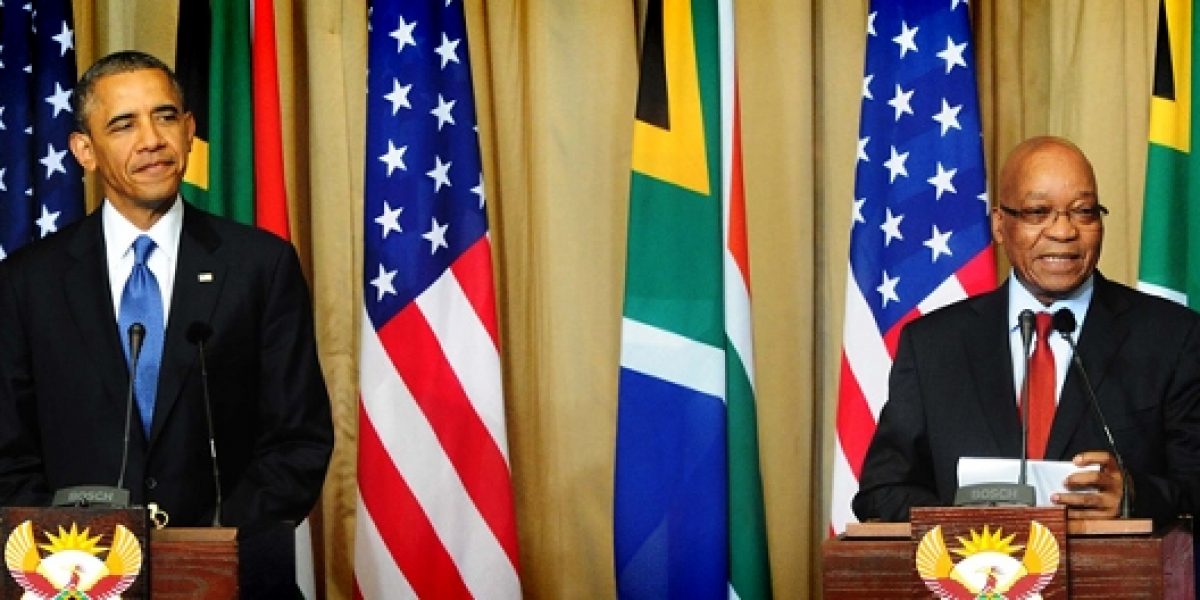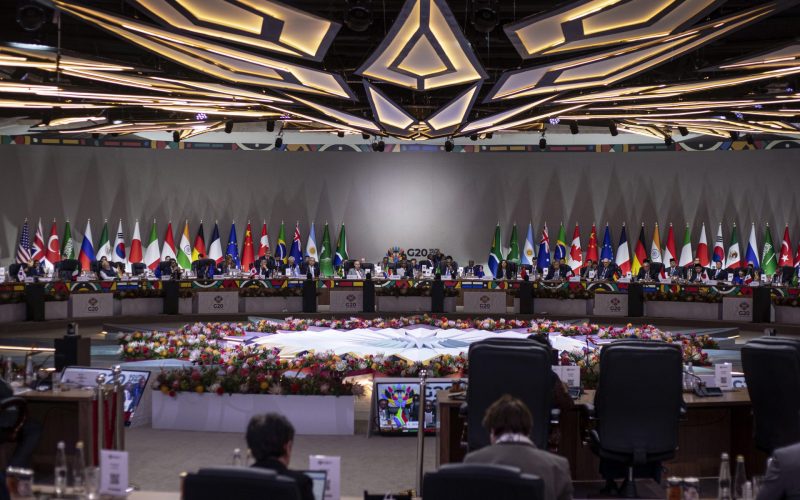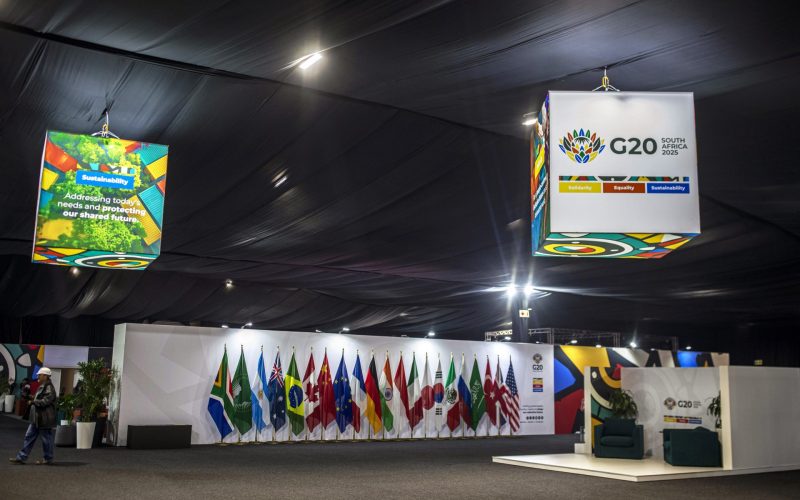That earlier ‘Ripple of Hope’ speech was so named after one phrase the young US Senator had used, saying ‘Each time a man stands up for an ideal, or acts to improve the lot of others, or strikes out against injustice, he sends forth a tiny ripple of hope, and crossing each other from a million different centers of energy and daring, those ripples build a current which can sweep down the mightiest walls of oppression and resistance.’
So Kennedy had called upon the youth of South Africa at that time to realise the power they had to bring about change in their own country.
On this occasion, on 30 June 2013, President Obama repeated that call in Jameson Hall at the University of Cape Town, asking young South Africans and indeed young Africans across the continent to act upon their ideals and to bring about the sort of Africa they hoped for – one free of corruption, grounded in democratic governance and free to soar with economic growth. In that context, Obama had earlier announced a new programme to encourage Africa’s youth in leadership, entrepreneurship and public service that would augment his Young African Leaders Initiative of 2010: the Washington Fellowship for Young African Leaders.
The implications for US-South Africa relations may not be apparent from this focus on youth and people-to-people exchange programmes. Indeed, taking the broader context of Obama’s visit into account, South Africa may not greatly benefit, at least directly, from ‘Power Africa’, a much more costly initiative announced at UCT that Obama promises will double access to electricity in Sub-Saharan Africa but which will first focus on Nigeria, Ghana, Ethiopia, Liberia, Kenya, and Tanzania.
Nor will Pretoria necessarily get much more mileage from the extension of the Africa Growth and Opportunity Act (AGOA) if Obama’s words to President Zuma a day earlier are borne out. Obama noted the need for negotiating new provisions of AGOA – for the sake of a ‘level playing field’ and Congressional approval of the bill – to take into account South Africa’s economic success and the access to South Africa enjoyed by other major trading partners. This message was also evident in the announcement of the ‘Trade Africa’ initiative in Dar es Salaam on 1 July 2013. Trade Africa will be launched in East Africa, with the negotiation of a regional investment treaty with the East African Community.
However, by choosing to make these announcements (except the Trade Africa initiative) and to deliver in South Africa what news pundits have called the keystone speech of his Africa visit, which has taken him to Senegal and Tanzania as well, Obama was acknowledging the pivotal role South Africa plays on the continent. Meeting with the new Chair of the African Union Commission in Johannesburg, South African Nkosazana Dlamini-Zuma, Obama ‘underscored the importance of the African Union’s leadership in advancing development and democratic norms across the continent.’
He repeatedly universalised the compelling message of Nelson Mandela to all Africans, demonstrating the US belief that South Africa, by its history in peacefully overcoming its past of racial separation and its current leadership on the continent, has set the tone for Africa in confronting its development challenges even as it takes advantage of the wave of interest in Africa’s resources from many emerging economies.
While this volley of diplomatic overtures may not represent an elevation of South Africa to prime position in the US gallery of international relationships – in view of the pressing issues that continue to preoccupy and bedevil the Obama administration in the Middle East, Asia and in its own hemisphere – there is some sense that Obama’s visit represents a ‘ripple of hope’ that the US is waking up, indeed, to Africa’s promise.
The neglect Africa as a whole and South Africa as a leader of the region seems to have suffered of late from the Obama administration, after the initial honeymoon period following Obama’s 2008 election to the White House and then his visit to Ghana in 2009, may have been turned around with this visit. A new season of focused attention on economic ties is definitely apparent, even if largely due to the competition the US is seeing from China, India and others investing in the infrastructure and development of African economies outside of World Bank and other traditional avenues where the US holds sway.
The rhetoric calling for an end to corruption, while not new, was particularly poignant in Obama’s several addresses during his visit to South Africa, perhaps indicative of the legacy he hopes to leave now that he has gained re-election and can turn his attention to matters of a more long-term, legacy-building nature.
Finally, his reminder to the audience at UCT that South Africa ‘has inspired the world’ and stands as ‘one of the world’s economic centers,’ a country that saw the first human heart transplant and in which new breakthroughs are being made in the treatment of HIV/AIDS, appears to be gauged to remind South Africa that, in this new era of partnering with African nations for the sake of the people of Africa and for the demise of ‘strong man’ politics, the US will be looking to South Africa as a leader in that effort.
Whether or not Obama will get the resources he seeks for this enhanced partnership, such as the US$7billion he has announced would be made available for Power Africa, from Congress now that the US economy is showing glimmers of hope that it is growing its way out of economic recession, remains to be seen, as does South Africa’s response to this invitation for enhanced bilateral relations.








